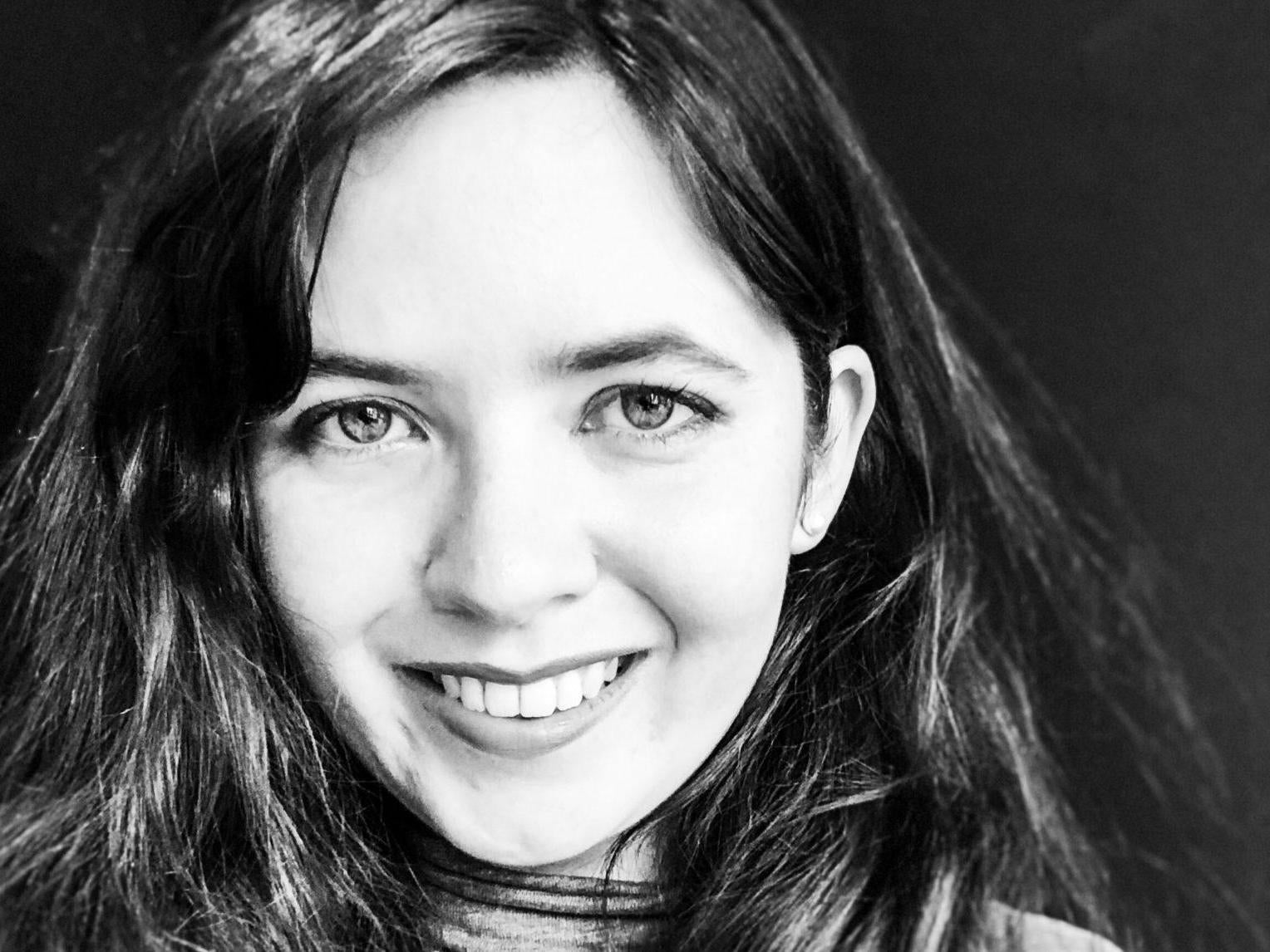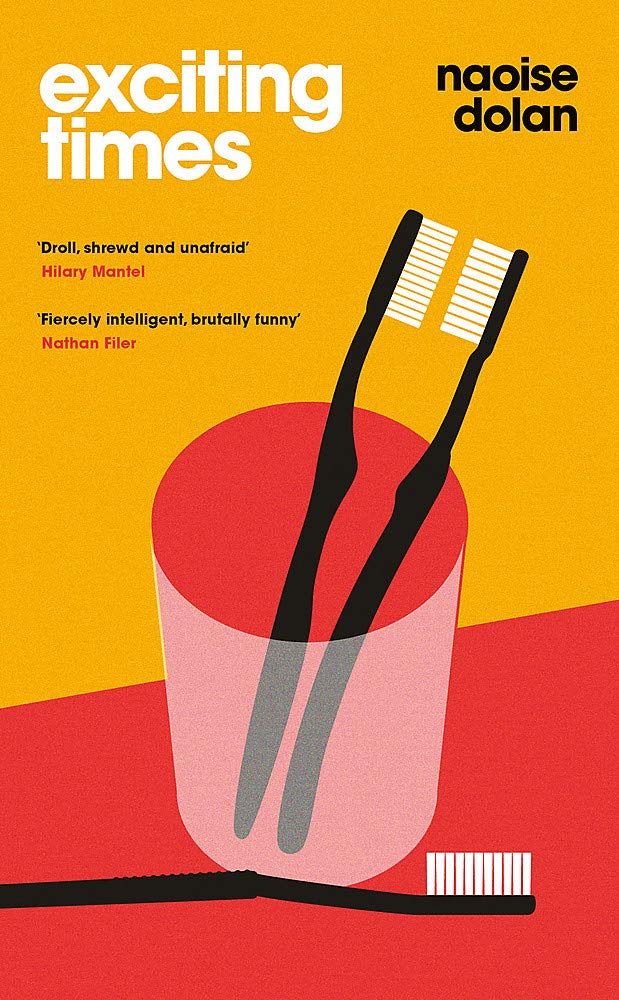Naoise Dolan: ‘The way people use on the spectrum is straight-up wrong and ableist’
The 28-year-old Irish author had just finished writing her best-selling debut novel ‘Exciting Times’ when she was diagnosed with autism. She talks to Ellie Harrison about growing up queer in Ireland, female self-loathing in literature and the British obsession with class


Your support helps us to tell the story
From reproductive rights to climate change to Big Tech, The Independent is on the ground when the story is developing. Whether it's investigating the financials of Elon Musk's pro-Trump PAC or producing our latest documentary, 'The A Word', which shines a light on the American women fighting for reproductive rights, we know how important it is to parse out the facts from the messaging.
At such a critical moment in US history, we need reporters on the ground. Your donation allows us to keep sending journalists to speak to both sides of the story.
The Independent is trusted by Americans across the entire political spectrum. And unlike many other quality news outlets, we choose not to lock Americans out of our reporting and analysis with paywalls. We believe quality journalism should be available to everyone, paid for by those who can afford it.
Your support makes all the difference.There are at least four good reasons why Naoise Dolan is certain to be described as “the new Sally Rooney” this summer. One: she’s Irish and has written one of the most talked-about novels of the year, Exciting Times. Two: they were at Dublin’s Trinity College together. Three: not only are the characters in Exciting Times and Rooney’s debut Conversations with Friends young and liberal, with complicated sex lives, but both authors explore modern female self-loathing. Four: like the adored BBC adaptation of Normal People, Exciting Times has just been snapped up to become a TV series.
The comparisons may prove to be superficial, however. Dolan had just finished writing Exciting Times when she was formally diagnosed with autism, but she’d always known she wasn’t like most people. “As a kid, I was broadly pretty cool with being different, until I started school, then I hated it,” she tells me over Zoom from her parents’ attic in Dublin. The 28-year-old was flagged as being on the spectrum aged 16, but “understood the whole thing so poorly that I thought everyone was on the spectrum line, which is completely untrue”.
The way that “on the spectrum” is used as a catch-all term to describe people who are socially inept is “straight-up wrong”, Dolan argues. “Excavating a term to describe someone’s neurology with a negative trait is just ableist.” Does she find it frustrating there is not more of a movement against it? “Because autistic people are intensely analytical, we discuss things amongst ourselves a whole lot, but it doesn’t reach mainstream ears,” says Dolan. “But there are definitely moments where I feel like I’m on a completely different planet from even the rest of the young left.”
While Dolan is clearly a meticulous thinker – as she speaks she is constantly analysing and unpicking her own arguments – she says she is “extremely careless with pretty much any matter except for the writing of novels”.
We have moved on to the subject of scattiness because of how Ava, the central character in Dolan’s witty, caustic debut novel, organises her thoughts. Ava is a 22-year-old Dubliner who moves to Hong Kong, where she starts sleeping with an emotionally repressed banker, Julian, and a free-loving lawyer, Edith. For a while, Ava hides her lovers from one another, her self-hatred deepening in the process. That might sound rather mirthless, but this is a book full of humour and piercingly astute social observation.
Ava writes out draft texts telling people how she really feels, before deleting them. One message to Julian reads: “Sometimes i love you and sometimes i think it would be best if a plane flew into your office and you were on the plane or in the building.” The text is never sent because Ava decides, on balance, that “this message would not have the propitiatory effect intended”.
It’s a habit that’s very relatable to the iPhone generation, with many of us using our Notes app to experiment with our feelings before we send them out into the world. “I do think we’re intensely epistolary in how we relate to each other,” says Dolan. “I have an extremely disorganised mind, so setting things out in a palpable way definitely helps me. If I lived in the pre-literacy era, I honestly don’t know how I would have had thoughts, because if I’m just in my head it becomes overwhelming very quickly.”
Dolan never got into diaries, “because if it’s personal and painful enough for me to want to vent it, I don’t want it there in writing. Typing it and scribbling back on a phone is much easier”.
If Dolan’s diaries had existed, they would have made for fascinating reading. Growing up queer in Ireland wasn’t exactly easy. School was an “intensely homophobic environment”, she says, where the word “gay” was used to mean “stupid”, and girls were accused of looking at their friends in the changing rooms. “I could have come out in school, just like I could open a car door and jump out onto the M50; but the consequences wouldn’t have been pretty,” Dolan wrote in a piece for the Irish Examiner earlier this year.

Dolan recalls going through a second adolescence as a queer person. “When you’re closeting something about yourself it leads to emotional repression and a stalling of maturity,” she says. “It delays you in getting to know yourself and moving spontaneously through the world.” She recalls “masking”, a technique where she would act as if she were straight, in order to “minimise the risk of being attacked”.
The 2015 same-sex marriage referendum in Ireland was “an intensely painful time to not be straight”, says Dolan, “because Dublin was plastered with posters telling us we weren’t fit to be parents”. The No campaign was largely funded by right-wing Christian groups in America, a dynamic that was seen again in the abortion referendum three years later. In the end, the abortion ban was overturned with 66.4 per cent in favour, and the yes campaign won marriage equality with 62 per cent of the vote. “It’s hurtful to have a huge chunk of the country vote no even if the result is the majority,” says Dolan. “And we had to watch people being congratulated for deciding they no longer wanted to deny us a right. We were told in canvassing briefings not to call anyone homophobic. Sadly, that was a good strategy, but it made me feel sick to my stomach.”
Dolan explores the uncertainty that can come with queer dating in Exciting Times, Ava spending hours analysing Edith’s Instagram for clues about her sexuality when they first meet. “Gaydars are funny ones,” says Dolan. “Mine is extremely good, but you’re culturally taught to doubt it at every turn, so you find yourself looking for things that could never actually constitute evidence in order to back up your intuition.”
Ava’s other love interest is Julian, a former Eton student who Ava says “wanted to know if my accent was posh where I came from” – just one example of Dolan’s pitch perfect social commentary. Dolan says she couldn’t not mention this particular British preoccupation in the book. “It’s my experience of English people that they’re fixated with class,” she says. “Ireland has a class system too, but it’s much more directly tied to capital. In our country, people with money were historically English in some way, so the idea of a purely Irish way of being posh is an entirely new thing.”
The legacy of British colonialism is threaded through the story, too, Dolan peppering the text with politically charged references to the Irish War of Independence, and English as it is spoken by the British – as opposed to the Irish and Hongkongers. “Language remains one of the most tangible tools of imperialism,” says Dolan, “because of the global need to learn English and the structural endorsement of a certain form of English, which is tied to whiteness.”
As for those Rooney comparisons, Dolan doesn’t mind them, but she points to many other novels that portray women’s interiority through self-hatred, from Sylvia Plath’s The Bell Jar to Charlotte Bronte’s Jane Eyre. She believes self-loathing is a form of narcissism. “Simply put,” says Dolan, “if you’re constantly thinking about how much you hate yourself, you’re still constantly thinking about yourself.”
The divergence between the two may become apparent with Dolan’s next novel. While Dolan is undecided about whether to write about autism, she has already completed a second book that tackles mental health. She’s reluctant to publish it, though. “It is an intensely depressing book about two people who go insane,” she says, “and I can’t see myself doing several months of publicity about it, so I might just keep it on my laptop.”
But there is good news for Dolan’s fans: she’s on to book three and the production deal for her debut novel includes Dolan herself on board as an executive producer. Exciting times, indeed.
‘Exciting Times’ is out now
Join our commenting forum
Join thought-provoking conversations, follow other Independent readers and see their replies
0Comments